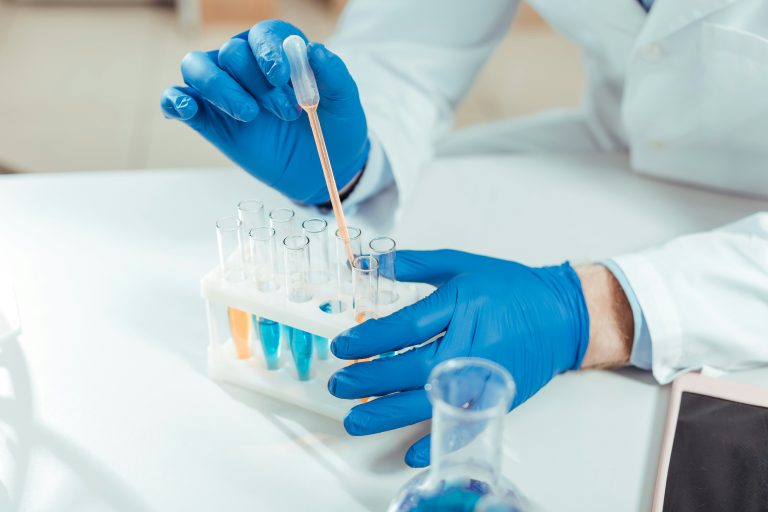The dynamic field of healthcare is perpetually advancing, pushing boundaries and elevating expectations for medical laboratory science professionals. In the face of an evolving landscape, the need for innovative leadership within this realm has never been more critical. Master’s programs in Medical Laboratory Science (MLS) are at the forefront, carving the path for future leaders who will spearhead changes and improve patient outcomes. A master’s degree can provide the breadth and depth of knowledge necessary to meet and exceed the complexities of today’s healthcare challenges. In this article, we will explore the pivotal role advanced education plays in equipping professionals for success in the fast-paced and demanding world of medical laboratory science.
Empowering Innovation Through Advanced MLS Education

Advanced education in medical laboratory science (MLS) is a comprehensive approach that goes beyond traditional laboratory work, allowing professionals to explore new research and development territories. Students learn to design experiments and interpret complex data using cutting-edge technologies and methodologies. These programs emphasize the integration of scientific principles with clinical applications, enabling laboratory professionals to translate findings into practical solutions for patient care.
Graduates from MLS often introduce more efficient, accurate, and cost-effective lab procedures in healthcare institutions, impacting disease management and patient prognosis. Interdisciplinary courses provide aspiring leaders with a broad perspective, preparing them to lead groundbreaking healthcare improvements.
The Role of Master’s Programs in Advancing Laboratory Science
Master’s programs in medical laboratory science are designed to enhance the expertise of laboratory professionals by providing a curriculum rooted in advanced scientific concepts. These programs not only refine technical skills but also equip students with strategic laboratory management skills, preparing them to adapt to the rapidly changing healthcare environment.
Graduates learn leadership skills for supervisory roles and directing laboratory operations. These programs emphasize critical analysis and ethical decision-making, enabling graduates to navigate the complexities of medical laboratory science with an ethical compass. By emphasizing research and development, these programs allow laboratory professionals to contribute to the medical research community, accelerating advances in diagnostic techniques and therapeutic interventions.
Fostering Leadership Skills in Medical Laboratory Science
Leaders in medical laboratory science (MLS) must adapt to the evolving healthcare landscape, and master’s programs in MLS help prepare them for this challenge. These programs integrate leadership training with scientific education, focusing on essential skills like team building, communication, and organizational dynamics. The goal is to develop professionals who can lead effectively while aligning with healthcare organization objectives.
Graduates of MLS master’s programs also emphasize mentorship, helping to guide the next generation of laboratory scientists. With a strong foundation in leadership competencies, such as strategic thinking and healthcare policy, these future leaders are equipped to drive innovation and improvement within the field. A Master of Science Leadership program offers a path to advancing in pivotal roles, shaping policies, and leading impactful healthcare initiatives.
The Impact of Cutting-Edge Curriculum on Healthcare Advancements

Advanced MLS education is a constantly updated curriculum that incorporates the latest scientific advancements, fostering an adaptive mindset among students. Graduates bring a fresh perspective to the workforce, introducing novel ideas that can improve healthcare. Modern developments like precision medicine and personalized treatment plans foster an adaptive mindset, preparing graduates to tailor laboratory analyses to individual patient needs.
Emerging technologies like artificial intelligence and machine learning transform laboratory operations, ensuring laboratories stay at the forefront of diagnostic and research capabilities. Graduates can influence policy-making by contributing to guidelines and standards for quality and reliability of laboratory results.
Bridging the Gap: Clinical Expertise Meets Management in MLS Programs
Modern MLS master’s programs combine clinical expertise with management acumen, focusing on both science and operational aspects. Graduates with this dual focus are crucial in orchestrating laboratory initiatives that align with institutional goals. These programs encourage a patient-first approach, ensuring managerial decisions are informed by clinical implications.
They also impart essential skills in financial management, resource allocation, and regulatory compliance, preparing professionals to navigate administrative complexities in healthcare. Health informatics and data management courses are also part of the curriculum, bridging the gap between laboratory data and patient outcomes, influencing decision-making and advocating for comprehensive healthcare strategies.
Overall, master’s programs in medical laboratory science shape the trailblazers of the field by instilling advanced scientific knowledge, leadership skills, and a visionary outlook on healthcare. These programs are vital in preparing professionals who will not only excel in their roles but will lead with innovation and conscientiousness towards superior patient care and lab management.
